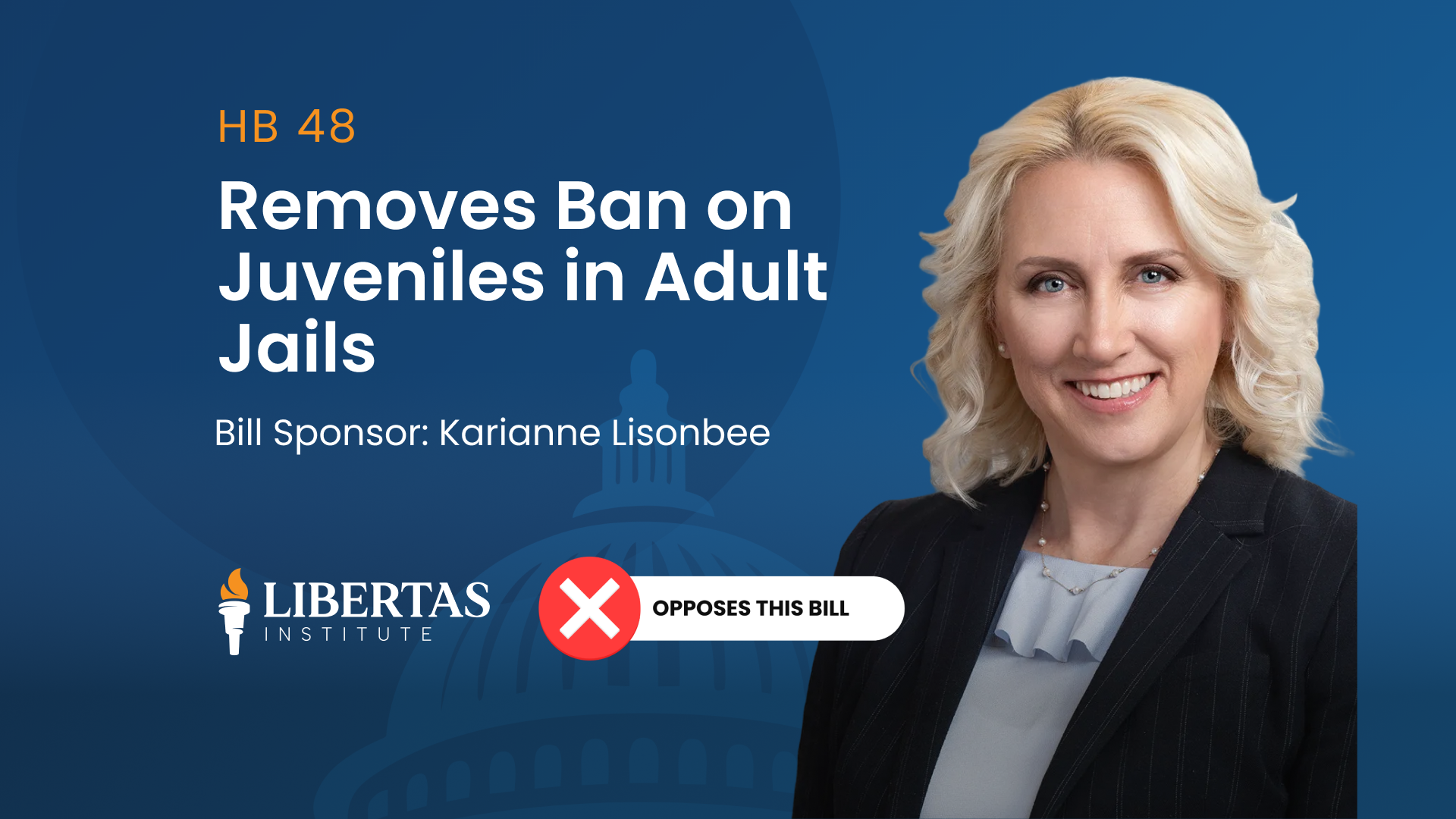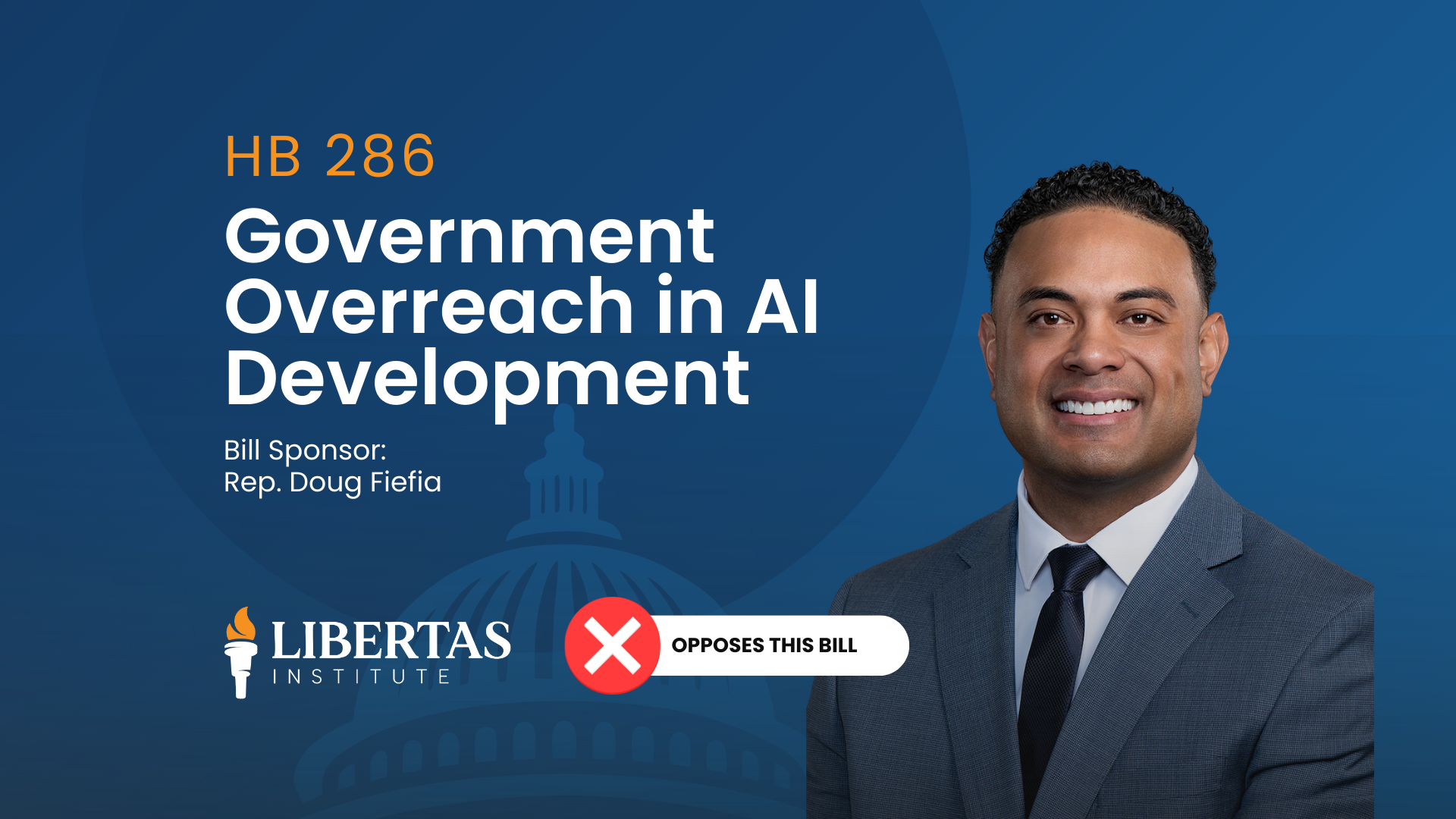This bill passed the house with a vote pf 56-11, and passed the senate with a vote of 24-1.
Libertas Institute opposes this bill
Representative Steve Eliason is sponsoring House Bill 139 to criminalize a person’s right to refuse a drug or alcohol test, which someone may do simply to exercise their 5th Amendment rights. His bill would implement a new penalty for refusing to submit to a test—and one that is harsher than an actual DUI conviction. Under HB 139, it doesn’t matter if a person is driving under the influence of drugs or alcohol or even completely sober. In every situation, refusing a chemical test would mandate the courts to order the following punitive measures:
- A 72-hour jail sentence which is “24 consecutive hours more than would be required” for an actual DUI. The law currently allows first time DUI offenders to perform community service in lieu of jail time—this bill removes that opportunity for simply refusing (and not even failing) a chemical test.
- A fine of $1,520, which is “$100 more than would be required” for an actual DUI. If a person is convicted of both the refusal and DUI, their fine would be a total of $2,940.
- A mandatory installation of an ignition interlock system, the imposition of an ankle device to continuously monitor alcohol intake, or the imposition of home confinement with electronic monitoring, even if the person was completely sober. All of these options are extremely expensive to maintain, and unnecessary for a person who was sober but simply did not want to provide their blood to the government.
The current penalty for refusing to submit to a chemical drug and alcohol test is an automatic driver’s license suspension for a period of 18 months. Taking away a person’s ability to drive is punitive enough, as the ability to legally drive is essential for getting by in daily life. But adding jail time, exorbitant fines, and expensive mandatory monitoring or interlock installation on top of the license suspension is far more detrimental—especially since the person being punished may have been sober.
This bill is clearly intended to send a message to individuals that refusing to submit to a chemical test is worse than taking it and failing. But this approach of bullying people into compliance with overly harsh criminal penalties is bad policymaking. Sure, there may be examples of people physically resisting and using violence as a means to refuse to take the test, but if that’s the main concern, the best way to solve it is by specifically targeting and penalizing those—which the law already covers.
If the bill passes, all DUIs will become strict liability offenses—no matter the circumstance. In Utah, a person is guilty of a DUI if they are in “physical control” of a vehicle with a .05% blood alcohol content. This means that if an intoxicated person is sleeping in the back seat of their parked car, they can be charged with a DUI because they technically have the ability to operate the vehicle. While most DUIs are already strict liability under current Utah case law, there is some leeway to allow courts discretion to determine if a person has actual intent to drive while in “physical control” of the vehicle. If they didn’t have intent to drive, such as the sleeping person, they may not be found guilty under the current law; this bill would abolish this discretion.




